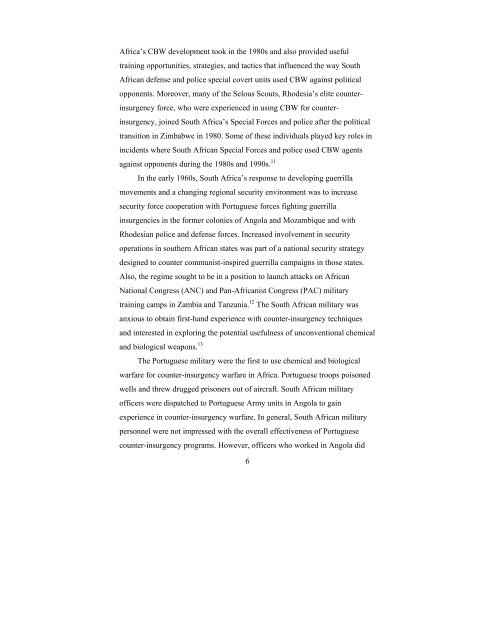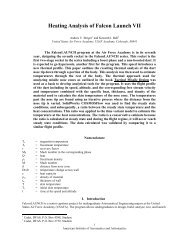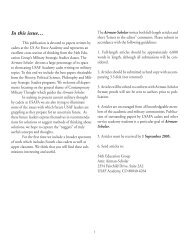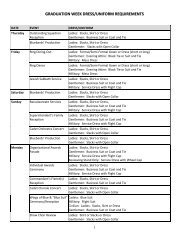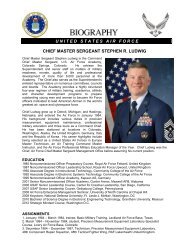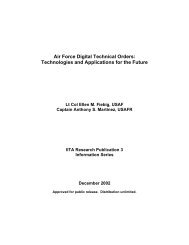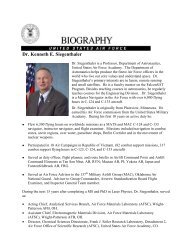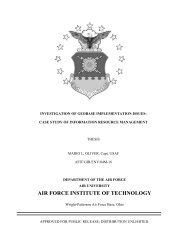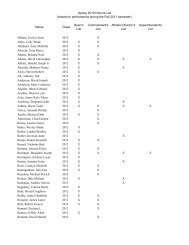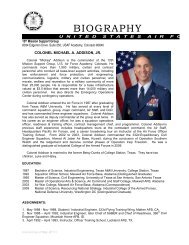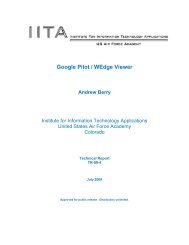the rollback of south africa's biological warfare program
the rollback of south africa's biological warfare program
the rollback of south africa's biological warfare program
You also want an ePaper? Increase the reach of your titles
YUMPU automatically turns print PDFs into web optimized ePapers that Google loves.
Africa’s CBW development took in <strong>the</strong> 1980s and also provided useful<br />
training opportunities, strategies, and tactics that influenced <strong>the</strong> way South<br />
African defense and police special covert units used CBW against political<br />
opponents. Moreover, many <strong>of</strong> <strong>the</strong> Selous Scouts, Rhodesia’s elite counterinsurgency<br />
force, who were experienced in using CBW for counterinsurgency,<br />
joined South Africa’s Special Forces and police after <strong>the</strong> political<br />
transition in Zimbabwe in 1980. Some <strong>of</strong> <strong>the</strong>se individuals played key roles in<br />
incidents where South African Special Forces and police used CBW agents<br />
against opponents during <strong>the</strong> 1980s and 1990s. 11<br />
In <strong>the</strong> early 1960s, South Africa’s response to developing guerrilla<br />
movements and a changing regional security environment was to increase<br />
security force cooperation with Portuguese forces fighting guerrilla<br />
insurgencies in <strong>the</strong> former colonies <strong>of</strong> Angola and Mozambique and with<br />
Rhodesian police and defense forces. Increased involvement in security<br />
operations in sou<strong>the</strong>rn African states was part <strong>of</strong> a national security strategy<br />
designed to counter communist-inspired guerrilla campaigns in those states.<br />
Also, <strong>the</strong> regime sought to be in a position to launch attacks on African<br />
National Congress (ANC) and Pan-Africanist Congress (PAC) military<br />
training camps in Zambia and Tanzania. 12 The South African military was<br />
anxious to obtain first-hand experience with counter-insurgency techniques<br />
and interested in exploring <strong>the</strong> potential usefulness <strong>of</strong> unconventional chemical<br />
and <strong>biological</strong> weapons. 13<br />
The Portuguese military were <strong>the</strong> first to use chemical and <strong>biological</strong><br />
<strong>warfare</strong> for counter-insurgency <strong>warfare</strong> in Africa. Portuguese troops poisoned<br />
wells and threw drugged prisoners out <strong>of</strong> aircraft. South African military<br />
<strong>of</strong>ficers were dispatched to Portuguese Army units in Angola to gain<br />
experience in counter-insurgency <strong>warfare</strong>. In general, South African military<br />
personnel were not impressed with <strong>the</strong> overall effectiveness <strong>of</strong> Portuguese<br />
counter-insurgency <strong>program</strong>s. However, <strong>of</strong>ficers who worked in Angola did<br />
6


